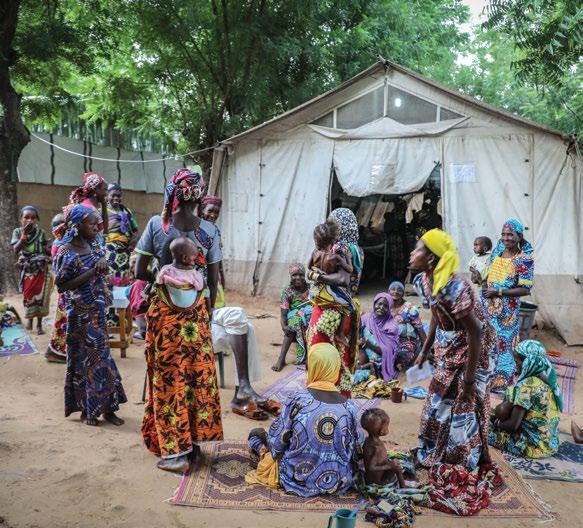
1 minute read
A PATIENT'S STORY FROM NIGER
When three-year-old Mohammed arrived at the Magaria district hospital in Niger’s Zinder region, his face was so swollen he could barely open his eyes.
He was suffering from kwashiorkor, a form of severe acute malnutrition characterised by swelling in the face and limbs. Without treatment, complications are frequent and potentially life-threatening: the condition has high mortality rates.
Mohammed received carefully staged care to treat his first medical complications and then his severe malnutrition. Once he was healthy enough to be discharged, his treatment continued at home. Médecins Sans Frontières provided his mother with sachets of ready-to-use food to give him and requested she bring him to the closest nutritional centre every week for check-ups until he was fully recovered.
Mohammed was one of many children treated for malnutrition by Médecins Sans Frontières teams in 2019, in partnership with the Ministry of Public Health, during the annual malnutrition and malaria peaks triggered by the rainy season and hunger gap (the annual period after which stored food from the previous harvest has run out but the next is not ready).





